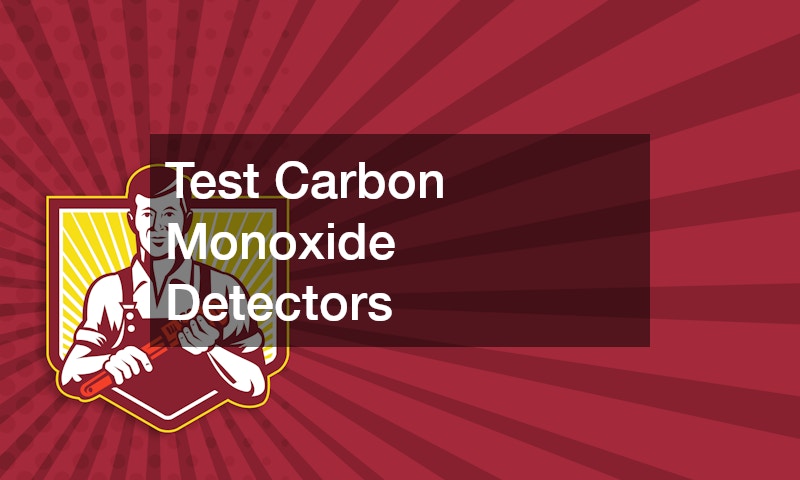As the cold winter months approach, it’s essential to ensure your HVAC system is in top-notch condition to keep your home warm and comfortable. Winter HVAC maintenance is crucial to prevent unexpected breakdowns and ensure your system operates efficiently throughout the season. By following a few simple steps and scheduling regular maintenance, you can avoid costly repairs and enjoy a cozy indoor environment all winter long.
Schedule a Professional Inspection

One of the first steps in winter HVAC maintenance is to schedule a professional inspection with reputable HVAC companies or HVAC contractors. A professional technician can assess your system’s overall condition, identify any potential issues, and perform necessary repairs or adjustments to improve its efficiency. Regular inspections can help prevent major malfunctions and extend the lifespan of your HVAC system.
During the inspection, the technician will check all components of your HVAC system, including the furnace, heat pump, and ductwork. They will also ensure that your thermostat is working correctly and that your indoor air quality is optimal. Don’t overlook the importance of regular maintenance, as it can save you time and money in the long run.
By scheduling a professional inspection before the start of winter, you can address any issues promptly and avoid unexpected breakdowns when you need your HVAC system the most. HVAC contractors are trained to spot potential problems early on and provide solutions to keep your system running smoothly.
Replace Air Filters Regularly
Another essential aspect of winter HVAC maintenance is regularly replacing air filters. Dirty filters can restrict airflow, causing your system to work harder and consume more energy. HVAC contractors recommend changing your filters every 1-3 months, depending on usage and the type of filter you have.
Dirty filters not only reduce your HVAC system’s efficiency but also impact your indoor air quality. Clogged filters can accumulate dust, pollen, and other contaminants, circulating them throughout your home. By replacing air filters frequently, you can improve air quality, reduce energy consumption, and prevent unnecessary strain on your system.
Air conditioning service providers often offer filter replacement services as part of their maintenance plans. Consider signing up for a service agreement to ensure that your filters are changed regularly and that your system receives the care it needs to perform optimally.
Clean Air Vents and Registers
During winter HVAC maintenance, don’t forget to clean your air vents and registers to ensure proper airflow throughout your home. Dust, pet dander, and debris can accumulate in these areas, impeding the circulation of warm air and lowering your system’s efficiency. Regularly vacuuming or dusting your vents can help prevent blockages and improve indoor air quality.
Professional air conditioning service providers can also perform a thorough cleaning of your HVAC system, including air vents and registers. By removing dirt and debris from these areas, you can enhance system performance and reduce the risk of allergens circulating in your home. Clean vents and registers also contribute to a more balanced temperature distribution, keeping every room in your house cozy.
In addition to cleaning vents and registers, consider inspecting your ductwork for any signs of leaks or damage. Sealing ducts can prevent warm air from escaping and save you money on heating costs during the winter months.
Seal Drafts and Leaks

One often overlooked aspect of winter HVAC maintenance is sealing drafts and leaks around windows, doors, and other openings in your home. These gaps can allow cold air to enter and warm air to escape, forcing your HVAC system to work harder to maintain a comfortable temperature. By caulking or weather-stripping these areas, you can improve energy efficiency and reduce heating costs.
HVAC installation service providers can conduct a home energy audit to identify areas where drafts and leaks are present. By addressing these issues, you can create a more airtight and energy-efficient home environment. Proper insulation and sealing can help your HVAC system operate more efficiently and prolong its lifespan.
Regularly inspecting your home for drafts and leaks and taking steps to seal them can make a significant difference in your comfort and energy bills during the winter months. Keep an eye out for gaps around doors and windows, as well as cracks in walls or the foundation that may allow cold air to infiltrate your home.
Program Your Thermostat Efficiently
Setting your thermostat to optimal temperatures can help you save energy and maintain a comfortable indoor environment during the winter. Programmable thermostats allow you to schedule temperature adjustments based on your daily routine, ensuring that your HVAC system operates only when needed. HVAC contractors recommend setting your thermostat to lower temperatures when you’re asleep or away from home to reduce energy consumption.
AC service providers can help you program your thermostat for maximum efficiency and comfort. By utilizing the features of your thermostat effectively, you can minimize energy waste and lower your heating bills. Many modern thermostats also offer smart technology that learns your preferences and adjusts temperatures automatically.
Proper thermostat management is essential for winter HVAC maintenance, as it directly impacts your system’s performance and energy usage. Consult with HVAC professionals to determine the best thermostat settings for your household and make adjustments as needed to optimize comfort and efficiency.
Check and Clear the Outdoor Unit
During the winter months, it’s vital to ensure that your outdoor unit is free from debris, snow, and ice to maintain proper airflow and system function. HVAC replacement service providers recommend checking the outdoor unit regularly and clearing any obstructions that may hinder its performance. Remove leaves, branches, and other debris from around the unit to prevent airflow restrictions and potential damage.
Regular maintenance of the outdoor unit can prevent issues such as compressor damage, reduced efficiency, and system breakdowns. By keeping the area around the unit clean and clear, you can help your HVAC system operate smoothly and efficiently throughout the winter. If you notice any ice buildup on the unit, contact HVAC professionals for assistance in safely removing it.
Don’t overlook the importance of inspecting and maintaining your outdoor unit as part of your winter HVAC maintenance routine. By ensuring proper airflow and ventilation, you can prolong the lifespan of your system and avoid costly repairs or replacements in the future.
Test Carbon Monoxide Detectors

Carbon monoxide is a silent killer that can be produced by malfunctioning HVAC systems, gas furnaces, or fireplaces. As part of your winter HVAC maintenance checklist, test your carbon monoxide detectors to ensure they are functioning correctly. Plumbing service providers recommend checking these detectors regularly and replacing batteries as needed to protect your family from potential CO leaks.
Carbon monoxide poisoning can cause flu-like symptoms, dizziness, and even death if not detected promptly. Plumbing contractors can help install carbon monoxide detectors in strategic locations throughout your home and provide advice on how to prevent CO leaks. In case of an alarm activation, evacuate your home immediately and contact emergency services for assistance.
Caring for your carbon monoxide detectors is crucial for ensuring the safety of your household during the winter months when heating systems are in constant use. Regular testing and maintenance can provide peace of mind and protect you from the dangers of CO exposure. Additionally, ensure that all fuel-burning appliances are inspected and serviced by professionals to reduce the risk of leaks and maintain safe indoor air quality.
Insulate Ductwork
Insulating your ductwork is a key component of winter HVAC maintenance that can improve energy efficiency and system performance. Plumbing company professionals recommend inspecting your ducts for leaks, tears, or gaps and applying insulation as needed to prevent heat loss. Well-insulated ductwork helps ensure that warm air reaches every room in your home and reduces energy waste.
By properly insulating your ductwork, you can enhance indoor comfort, reduce heating costs, and extend the lifespan of your HVAC system. Local plumbers can assist with duct insulation and recommend the best materials for your specific ductwork type. Properly sealed and insulated ducts also minimize the risk of airborne contaminants entering your living spaces.
Take the time to inspect and insulate your ductwork before the winter months to optimize your HVAC system’s performance and efficiency. Well-insulated ducts contribute to better indoor air quality, lower energy bills, and a more comfortable home environment during the cold season.
Clean the Heat Exchanger
During winter HVAC maintenance, don’t forget to clean the heat exchanger in your furnace or heat pump. Dirt, debris, and rust can accumulate on the exchanger, obstructing airflow and reducing system efficiency. Plumbing service providers recommend scheduling a professional cleaning of the heat exchanger to remove buildup and ensure optimal heating performance.
A clean heat exchanger not only improves system efficiency but also prolongs its lifespan and prevents potential malfunctions. Plumbing contractors have the expertise and tools to safely clean the exchanger and inspect it for any signs of damage. Regular maintenance of the heat exchanger can prevent breakdowns and ensure that your system operates reliably throughout the winter.
Don’t neglect the maintenance of your heat exchanger, as it plays a critical role in your HVAC system’s functionality and overall performance. By scheduling regular cleanings and inspections, you can prevent costly repairs and enjoy consistent heating during the cold winter months. Additionally, a well-maintained heat exchanger can improve indoor air quality by reducing the circulation of dust and other particles, keeping your home cleaner and more comfortable.
Monitor Energy Bills
Monitoring your energy bills is an essential part of winter HVAC maintenance to track your system’s efficiency and identify any sudden spikes in energy consumption. Local plumbers recommend comparing your current bills to previous months to detect any unusual patterns or discrepancies. Higher-than-normal energy bills could indicate a problem with your HVAC system that requires attention.
If you notice a significant increase in your heating costs, contact HVAC contractors to inspect your system and identify the root cause of the issue. Professional technicians can diagnose potential malfunctions, inefficiencies, or leaks that are contributing to high energy bills. Taking prompt action can help you address the problem early and avoid more extensive repairs down the road.
Regularly monitoring your energy bills can provide valuable insights into your HVAC system’s performance and efficiency. By staying vigilant and addressing any abnormalities promptly, you can maintain optimal comfort levels in your home and save money on heating expenses during the winter.
Upgrade to a Smart Thermostat

One of the most effective ways to improve energy efficiency and comfort during HVAC maintenance is by upgrading to a smart thermostat. Smart thermostats offer advanced features such as programmable schedules, remote access, and energy-saving modes that can help you optimize your heating system. HVAC professionals recommend investing in a smart thermostat to control your indoor climate more effectively.
With a smart thermostat, you can adjust temperatures from your smartphone or computer, even when you’re away from home. This convenience allows you to save energy by adjusting settings based on your schedule and lifestyle. Some models even provide usage reports and suggest adjustments to maximize efficiency. HVAC installation service providers can help you choose the right smart thermostat for your needs and ensure proper installation and setup.
By upgrading to a smart thermostat, you can enjoy greater control over your HVAC system, improve energy efficiency, and reduce heating costs. Take advantage of smart technology to create a comfortable and energy-efficient home environment that adapts to your preferences and helps you stay cozy throughout the winter. Plus, with customizable features, you can achieve a perfect balance of comfort and savings every day.
Winter HVAC maintenance is essential for ensuring your system operates efficiently and reliably during the cold season. By following these tips and scheduling regular inspections with HVAC companies or contractors, you can prevent unexpected breakdowns and costly repairs. Remember to replace air filters, clean air vents and registers, seal drafts, program your thermostat efficiently, and test carbon monoxide detectors to protect your home and family. Monitor energy bills, upgrade to a smart thermostat, and prioritize proper maintenance of your ductwork and heat exchanger for optimal performance. By taking these steps, you can enjoy a warm and comfortable home all winter long.
